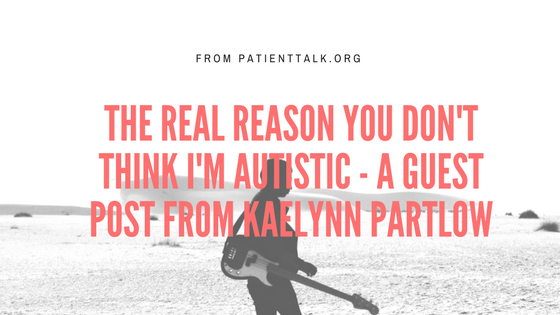When I tell people I’m on the autism spectrum, the reaction I most commonly receive is disbelief. In the past, people have responded by saying things like, “wow! I would’ve never guessed!” Or, “really? Are you sure?”
The reason people are so shocked to find out I’m autistic, is because I don’t fit into their stereotypical view of a developmentally disabled person. I’m tall, thin and blonde. I have brown eyes and my hair is long and straight. The fact that I am female means I’m less likely to have an autism diagnosis, however, I am indeed quite sure that I do have a professional diagnosis. Despite the fact that I don’t “look” autistic.
What does an autistic person look like anyways? The answer is, they look like everyone else. Autistic people come from all ethnic backgrounds, in every shape and size. However, let’s address the stereotype image.
When we ask society what an autistic person looks like, we get a different answer. The person society has pictured is often a person with shorter, messy hair. They often wear baggy athletic clothes. The person that society imagines, is often nonverbal or limited in speech. This person “doesn’t like to be around people”.
This is the stereotype that people imagine when they think of an autistic person. It is incorrect, and harmful. Autistic people, like everyone else, can have an endless variety of wardrobe, hair styles and social preferences.
To further address this stereotypical image, the reason some autistics prefer shorter hair and loose clothing is due to sensory difficulties. As the saying goes, “once you’ve met one autistic person, you’ve met one autistic person.” No two are exactly alike! Meaning that just because one person may dislike brushing and keeping up with long hair, doesn’t mean another wouldn’t mind. Some people like loose fitting clothing, while others like their clothes to fit tightly.
The diagnostic criteria has expanded to include people who are not verbally limited. So next time you hear about someone’s autism diagnosis, please don’t react with shock or disbelief. Instead, acknowledge and affirm their statement.
